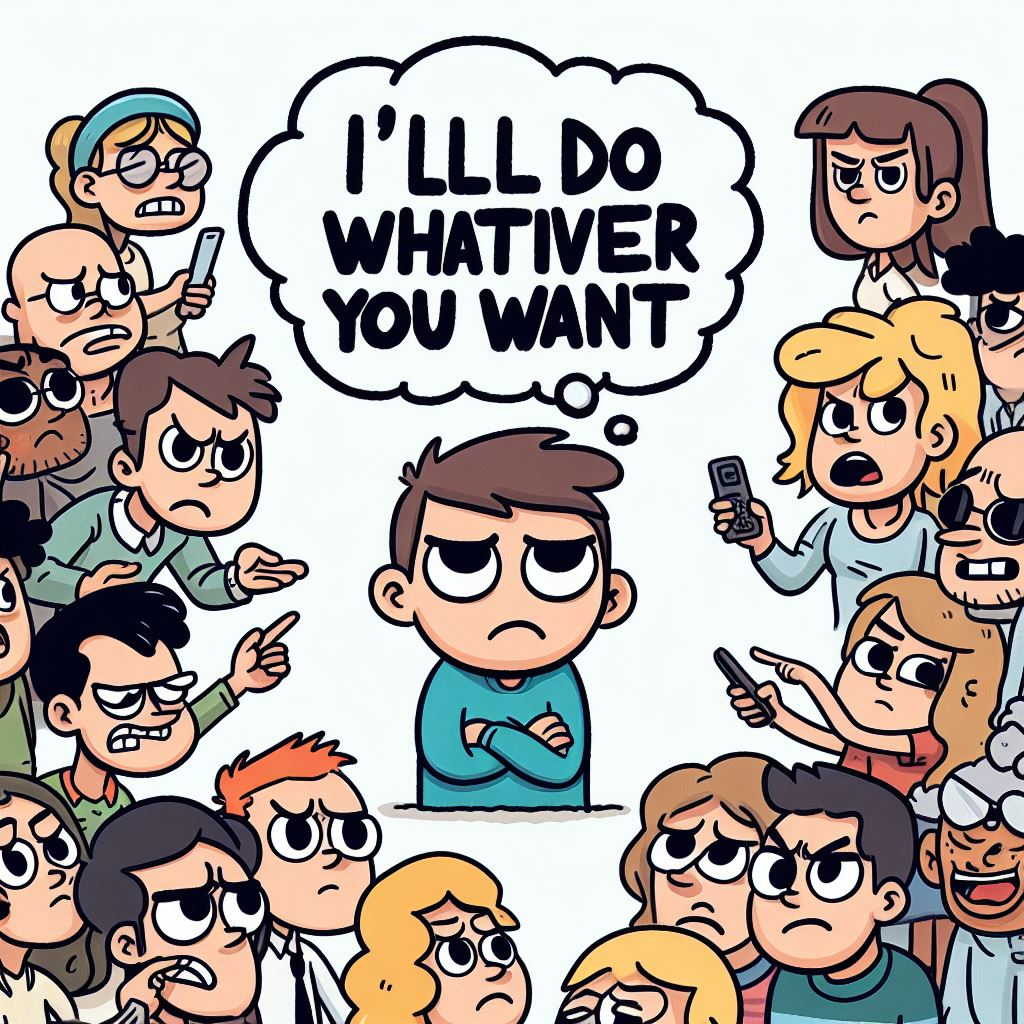People-pleasers: the supportive friends, the ever-reliable colleagues, the ones who always go the extra mile. On the surface, their behavior seems admirable. But beneath the helpfulness can lie a deep-seated need for approval that takes a toll on their well-being. Let’s delve into the psychology of people-pleasing, exploring its root causes, downsides, and, most importantly, how to overcome it.
The Seeds of Approval: Where People-Pleasing Takes Root
People-pleasing often stems from childhood experiences. Inconsistent parental love, overly critical environments, or a chaotic upbringing can lead a child to believe their worth is tied to external validation. To feel secure, they prioritize keeping others happy, even at their own expense. As they grow up, this pattern solidifies. They become experts at reading emotions, anticipating needs, and bending over backwards to avoid disapproval.
The Inner Critic’s Chorus: What People-Pleasers Think
The internal narrative of a people-pleaser is often dominated by fear and self-doubt. Here’s a glimpse into their thought process:
“If I say no, they’ll think I’m selfish/unhelpful.”
“I can’t disappoint them, or they might reject me.”
“Their happiness is more important than mine.”
“I won’t be good enough unless they approve.”
Difficulty setting boundaries: People-pleasers struggle to say no, often taking on more than they can handle.
Resentment and anger: Their needs go unmet, leading to bottled-up resentment towards those they help.
Loss of self: They prioritize others’ opinions, neglecting their own desires and values.
People-pleasing makes individuals susceptible to manipulation and exploitation. They’re easy targets for those who take advantage of their helpfulness. Additionally, the constant need for approval can lead to:
Low self-esteem: Their self-worth is contingent on external validation, creating a fragile sense of self.
Anxiety and stress: The fear of disapproval fuels anxiety, making them overly cautious in social interactions.
Exhaustion: The emotional and physical toll of constantly prioritizing others can be draining.
Identifying the People-Pleaser Within
Do any of these scenarios sound familiar?
You agree to work overtime despite having prior commitments.
You feel guilty taking a break when your colleagues are swamped.
You find yourself apologizing for things that aren’t your fault.
These are all signs of people-pleasing behavior.
Breaking Free: Strategies to Stop People-Pleasing
The good news is that people-pleasing is a learned behavior, and it can be unlearned. Here are some effective strategies:
Practice self-compassion: Recognize your worth isn’t dependent on others’ approval.
Set healthy boundaries: Learn to say no gracefully, prioritizing your own needs and time.
Identify your values: Reconnect with what truly matters to you and act in accordance with those values.
Express your needs: Assertively communicate your needs and feelings in relationships.
Instead of people-pleasing, strive to develop self-respect. This means treating yourself with kindness, valuing your opinions, and setting healthy boundaries. Here’s how:
Challenge negative self-talk: Replace self-criticism with affirmations that highlight your strengths.
Focus on personal growth: Invest time and energy in pursuing your own goals and interests.
Remember, a healthy balance is key. Helping others is commendable, but it shouldn’t come at the expense of your own well-being. By prioritizing self-respect and asserting your needs, you’ll cultivate healthier, more fulfilling relationships. Break free from the people-pleasing cycle and unlock the path to a happier, more authentic you.
Related Reading Material:
(1) People-Pleasing | Psychology Today. https://www.psychologytoday.com/intl/basics/people-pleasing
(2) Breaking the Habit of People-Pleasing | Psychology Today. https://www.psychologytoday.com/us/blog/sustainable-life-satisfaction/202308/breaking-the-habit-of-people-pleasing
(3) The Psychology of People-Pleasing: Causes and Strategies for Overcoming …. https://www.resilientrootspsychotherapy.com/blog/overcoming-people-pleasing
(4) People pleaser: Definition, signs, risks, and how to stop. https://www.medicalnewstoday.com/articles/people-pleaser

